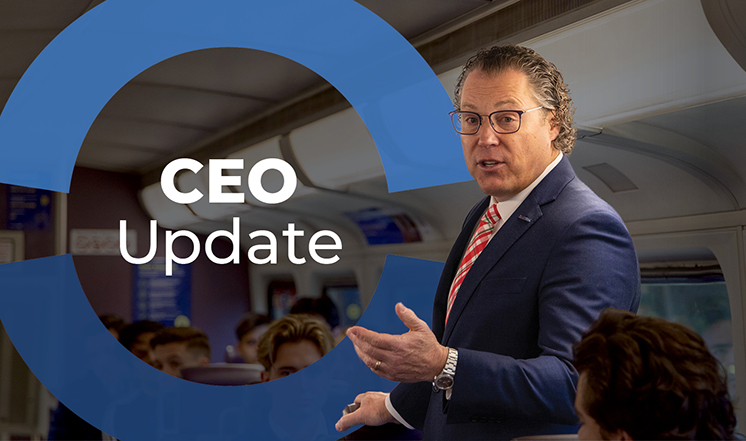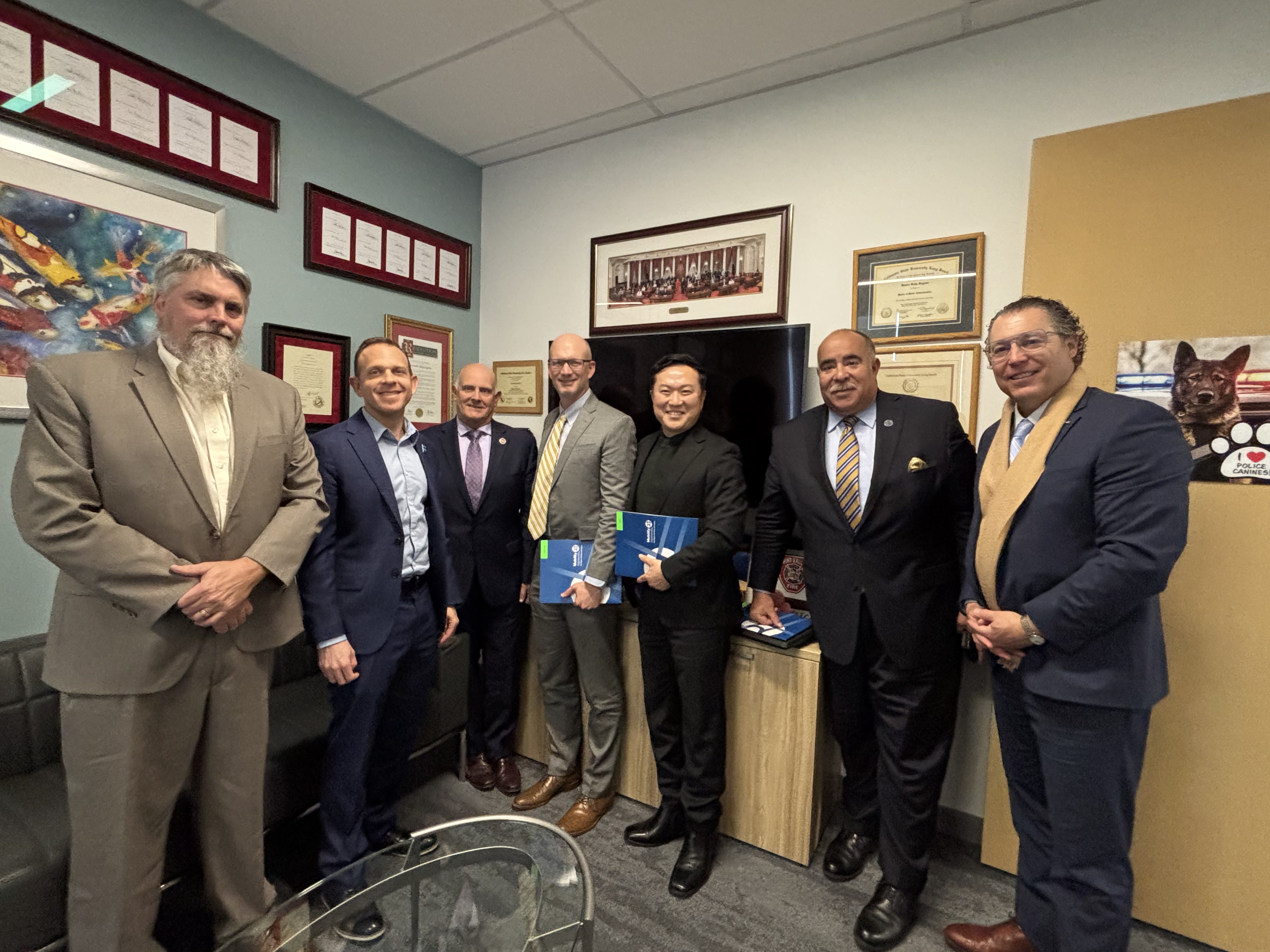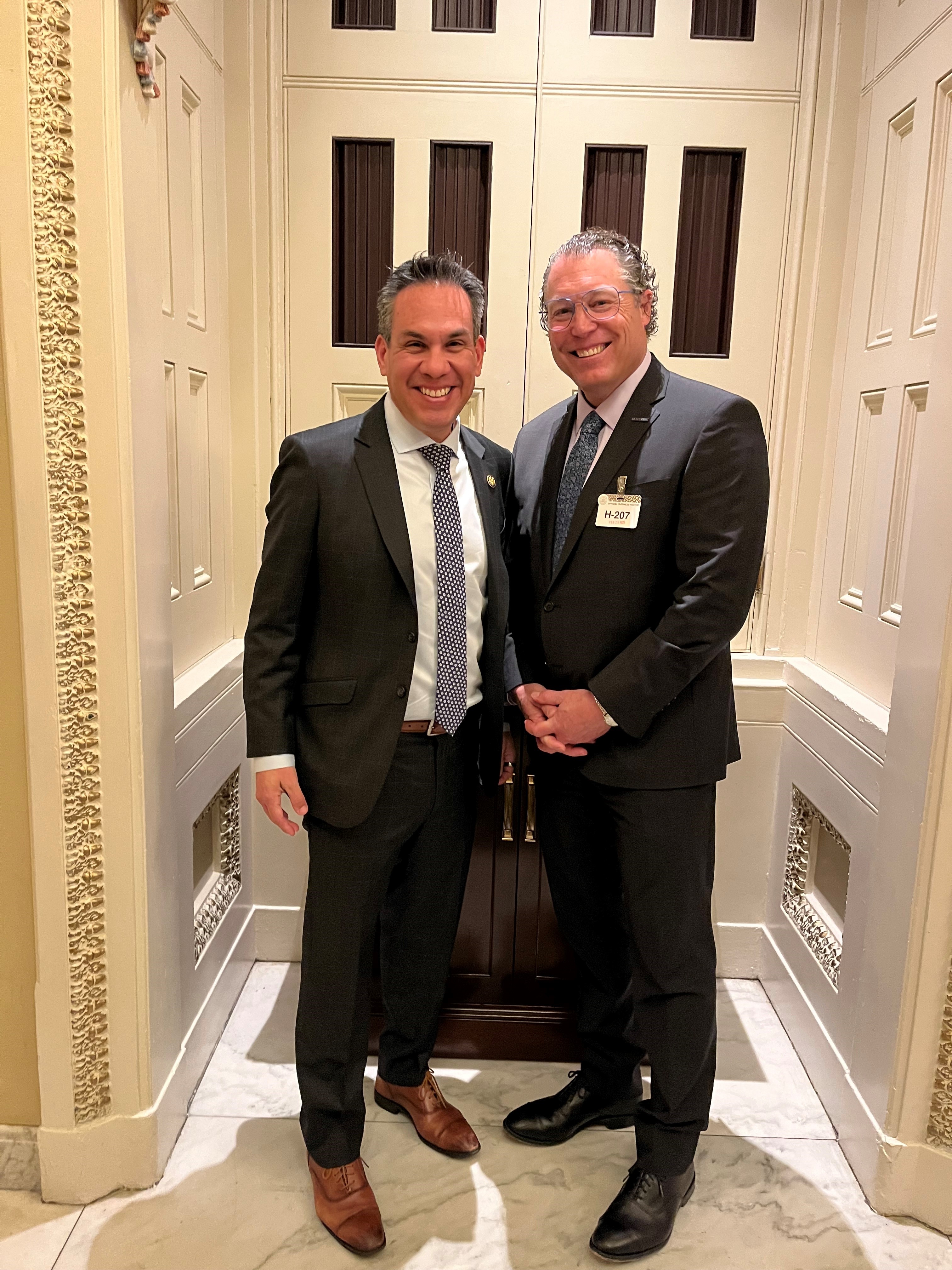
It’s been a fast-paced start to the year, and with so much going on in Southern California and across the country, I’ve spent much of February on the road ensuring decision-makers in Sacramento and on Capitol Hill understand Metrolink’s priorities and have the information they need to direct crucial resources our way.
Earlier this month, I traveled to Sacramento with the Mobility 21 delegation to engage with state lawmakers and members of Governor Newsom’s administration. I had productive conversations with Speaker of the Assembly Robert Rivas’ team and members of Metrolink’s state delegation, including Senator Kelly Seyarto and Assemblymembers Leticia Castillo and Corey Jackson. As part of those discussions, I took the opportunity to thank them for preserving transit operations funding provided in last year’s state budget through Senate Bill 125 and urged them to take similar action again this year to protect existing transit funding streams.

Darren and members of the Mobility 21 delegation visit with State Senator Kelly Seyarto (CA-32) during a recent trip to Sacramento. (From left: Dr. Raymond Wolfe, executive director of the San Bernardino County Transportation Authority, Andrew Hake, executive director of the Riverside County Transportation Commission, Sen. Seyarto, Brandon Davis, partner, Nossaman, Tom Kim, senior vice president, HDR, Paul Granillo, president and CEO of the Inland Empire Economic Partnership, and Darren.)
Beyond those legislative meetings, I appreciated the invaluable face-to-face time the trip provided with CalSTA Secretary Toks Omishakin, Caltrans Director Tony Tavares and the governor’s Deputy Cabinet Secretary James Hacker. Our discussions centered on the state’s transportation priorities and how Metrolink’s goals align with California’s broader climate, equity and mobility efforts. I also reinforced how our pending grant applications, currently under review by the Newsom administration, would help drive meaningful progress in these areas.
This week, I headed east to Washington, D.C., where I met with members of Metrolink’s federal delegation and key administration officials, including Senator Alex Padilla; Representatives Pete Aguilar (CA-33), Julia Brownley (CA-26), Ken Calvert (CA-41), Judy Chu (CA-28), Gil Cisneros (CA-31), Laura Friedman (CA-30), Young Kim (CA-40), Dave Min (CA-47), Luz Rivas (CA-29), Norma Torres (CA-35) and Derek Tran (CA-45); staff from the offices of Senator Adam Schiff and Representatives Mike Levin (CA-49) and George Whitesides (CA-27); and senior officials with the Federal Railroad Administration and House Transportation and Infrastructure Committee.

Darren meets with Representative Pete Aguilar (CA-33) at the U.S. Capitol. Representative Aguilar chairs the House Democratic Caucus and is an engaged member of Metrolink's federal delegation.
As policies and priorities in our nation’s capital shift under the new administration, our team focused on the importance of maintaining strong federal partnerships. I outlined our capital and operation funding needs ahead of the 2028 Olympic and Paralympic Games and emphasized how upcoming legislation—expected to succeed 2021’s landmark Infrastructure Investment and Jobs Act—must expand access to grant funding for regional and commuter rail system improvements.
Now that I’m back home (for now), the work continues. And it takes on even greater significance as we look toward 2028. This is our moment to build a transit system worthy of the world stage—one that is seamless, sustainable and ready to connect locals and visitors alike to experiences they’ll never forget. Together, we are laying the foundation for a transportation network that will not only meet the demands of the Olympics and Paralymics but will also serve Southern Californians well for generations to come.

